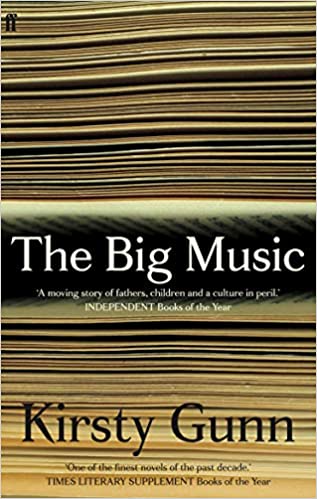This high-concept novel is admittedly a bit demanding to read. Although it is the story of difficult family relationships, a distinguished heritage, a dying man, it is written to convey a sense of the piobaireachd, the classical form of bagpipe music, a type of music dependent upon repetition and embellishment.
John Callum Sutherland, an old man nearing his death, is trying to complete a piobaireachd called “Lament for Himself.” Because of his fears of his father, a famous piper, John Callum as a young man left behind his long, distinguished family history and vowed never to return. Only once he returned after his father’s death and met Margaret MacKay, the housekeeper, did he realize what he missed by leaving, the music and the great love.
Now, dying and off his meds, John Callum needs a new note for his piobaireachd. He decides he can find it by taking Katherine Anna, Margaret’s infant granddaughter as well as his own, to his small hidden hut where he works on his music. As he goes, he imagines the melodies made by Helen, Margaret’s daughter, when she finds her baby is missing.
Margaret has summoned Callum Innes, John Callum’s son, from the south because she knows John Callum doesn’t have long to live. Callum has never lived in the remote family home in Sutherland. He has only spent his boyhood summers there and has never felt part of it. He too fears his father.
This novel is about a family home, a family legacy, music, and the relationships between fathers and sons. It is at times touching, but it appeals more to the cerebral than to the emotional. Not only is the novel written in the form of the piobaireachd and attempts to convey the music, but it is heavily annotated and makes the novel itself, and the writing of it, the center of the story in the postmodern fashion. Finally, it provides nearly 100 pages of appendixes for those interested in the history of the family, the piobaireachd form, the geography of the area, and many other topics.
I found this novel, which I read for my James Tait Black project, more intellectually interesting than involving. I have to admit to tiring of some of its repetitions, most often of the footnotes in continually referring readers to the appendixes.

